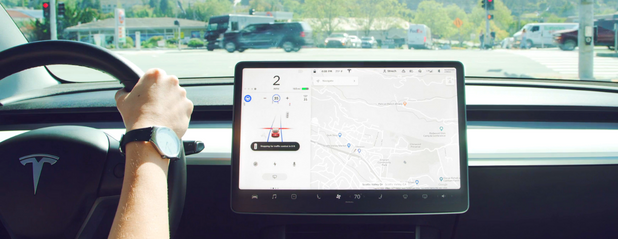Tesla recalls more than 360,000 self-driving cars over software flaws in the US.

Tesla are leading the way when it comes to autonomous vehicles, as all Tesla cars now come standard with advanced hardware capable of providing Autopilot features, and full self-driving capabilities—through software updates designed to improve functionality.
Tesla’s self-driving features
Autopilot is a cutting-edge feature driver assistance system that improves comfort and safety while operating a vehicle. Autopilot lessens your overall workload as a driver when used appropriately.
The usage of Autopilot, Advanced Autopilot, and Full Self-Driving Capability is only recommended when there is a fully alert driver behind the wheel who is always ready to take control. Although these characteristics are intended to develop in capability over time, the ones that are currently active do not render the vehicle autonomous.
Although according to the National Highway Traffic Safety Administration (NHTSA) they have come across some concerns about the "full self-driving beta"(FSD Beta) software that could cause crashes.
Flaws reported in Tesla’s full self-driving beta software
The recall notice was posted on the website of the NHTSA on 15th February 2023 where they described the fault of the software. They stated that in certain rare circumstances, the feature could potentially infringe upon local traffic laws while performing certain driving manoeuvres.
This includes:
- Traveling or turning through certain intersections during a stale yellow traffic light.
- The perceived duration of the vehicle’s static position at certain intersections with a stop sign, particularly when the intersection is clear of any other road users.
- The adjustment of vehicle speed while traveling through certain variable speed zones, based on detected speed limit signage and/or the vehicle's speed offset setting that is adjusted by the driver.
- The negotiation of a lane changes out of certain turn-only lanes to continue traveling straight.
Tesla also identified 18 warranty claims, received between 8th May 2019, and 12th September 2022 that may be related to the conditions described above. Tesla are not aware of any injuries or deaths that may be related to the flaws. As a result, the NHTSA requested that Tesla address these concerns by filing a recall notice.
Recalling Tesla’s full self-driving beta software
Often the term ‘recall’ means returning products in order to fix or destroy the issue, however, as this is a software fault Tesla are able to update and solve the software faults over-the-air (OTA) and at no extra cost to their customers. The OTA update is expected to deploy in the coming weeks, which will improve how FSD Beta negotiates certain driving manoeuvres during the conditions described.
It’s situations like this where although self-driving cars might be the future of how we commute from A to B, they pose some serious risks which we all need to be aware of before investing in them. Due to the technology still being so new the self-driving car industry is unregulated; therefore companies need to create their own standards that ensure that vehicles do not compromise safety and they must be fully tested as well as approved by regulators before they can be sold.
IT and tech job opportunities in the automotive industry
This means companies must invest in IT and tech professionals to help with their processes. The autonomous cars industry has created a range of IT jobs including opportunities for:
- Software Developers
- Software Engineers
- QA Testers
- Test Engineers
- Systems Engineers
- Robotics Engineers
- IT Support Technicians
- Business Analysts
- Cyber Security Architect
- Product Managers
Find out more about how technology is impacting the automotive sector.
